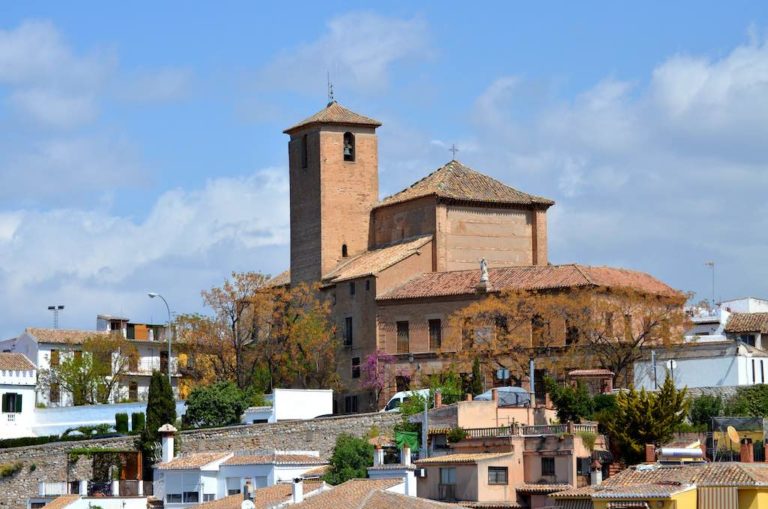Discover Granada’s must-visit museums: from the majestic Alhambra to the intimate legacy of Federico García Lorca.
Contenidos
Antonio Machado once said that all cities have their charm, but Granada possesses not only its own but also that of all the others. Perhaps this is why the city has inspired countless artists throughout history. In its most unexpected corners, you can discover museums in Granada that reveal its cultural essence. At Hammam, we invite you to explore the soul of Granada through its most iconic museums.
In the Footsteps of Lorca: The House of Federico García Lorca
In the heart of Federico García Lorca Park, surrounded by lush green spaces, stands the Huerta de San Vicente. This was the poet’s summer residence, where he lived with his family between 1926 and 1936 — the year he was tragically killed during the Spanish Civil War.
Today, it is a House-Museum declared a Site of Cultural Interest. It preserves its original structure and displays personal belongings, manuscripts, photographs, paintings, and drawings that allow visitors to get closer to the poet’s life and work.
A pleasant walk along sunlit avenues lined with poplars, lime trees, and gardens leads you to this special place. The sound of water, so present in Lorca’s poetry, accompanies you. Here, in an environment of irrigation channels and fountains, he created masterpieces like Blood Wedding and Yerma. Without a doubt, it is one of Granada’s museums with the richest history and cultural value.
Harmonies of Dawn: The Musical Essence of Manuel de Falla
Another cultural gem is the Manuel de Falla House-Museum, located in a dreamlike setting. This typical carmen —a traditional Granada house with a garden— was home to the composer and his sister María del Carmen from 1922 to 1939. During those years, he developed a close friendship with Lorca.
In this modest whitewashed house with blue windows, Falla composed some of his most celebrated works. Among them are El Retablo de Maese Pedro, Psyché, Concerto for Harpsichord and Five Instruments, and Sonnet to Córdoba. Located on Paseo de los Mártires, just a short distance from the Alhambra, it offers visitors an intimate look at his life through personal objects, including his piano and original furnishings, which have never left the house.
Next to the House-Museum, the auditorium and archive preserve his documentary legacy and personal library, offering an additional cultural experience for visitors.
Echoes of History and Tradition: The Casa de los Tiros
In the Realejo neighborhood —where Jewish, Arab, and Christian influences converge— stands the Casa de los Tiros. This 16th-century fortress is one of the most important museums in Granada.
Located on Calle Pavaneras, it takes its name from the artillery pieces once placed on its battlements. Although only the original tower remains, its interior holds remarkable treasures.
The building has twelve rooms filled with photographs, maps, local crafts, books, posters, prints, and documents. Together, they form a comprehensive journey through Granada’s history and traditions. Highlights include the royal portraits on the main staircase, the richly decorated coffered ceiling of the Cuadra Dorada, and a room displaying tapestries and Nasrid-style ceramics that once belonged to prominent families.
Codices and Legends: The Treasures of the Sacromonte Abbey
On Valparaíso Hill, at the far end of the picturesque Sacromonte neighborhood, you will find the Sacromonte Abbey. It is one of the museums in Granada with the greatest artistic heritage.
Its collection includes sculptures, paintings, gold and silver work, embroidery, and unique pieces such as an original manuscript of Averroes’ Treatise on Medicine, a painting by Goya, and a hymn handwritten by Saint John of the Cross.
In addition to being a place of pilgrimage, it is well known for housing the remains of Saint Cecilius, Granada’s patron saint. It is also famous for the discovery of the Libros Plúmbeos — circular lead plates with Arabic inscriptions of great historical importance.
A Sensory Journey at Hammam Al Ándalus Granada
To truly understand Granada’s history, you must experience its Arab baths. Few places capture the Andalusian legacy as vividly as Hammam Al Ándalus.
Located in the heart of the old town, this sanctuary blends tradition and well-being. It offers an experience that transports you to the Arab baths of five centuries ago. Here, water leads a sensory journey that purifies the body and relaxes the mind, while reviving the social role these spaces once held.
During the Muslim period, Granada had up to twenty-one hammams. Most disappeared after the Catholic Monarchs deemed them morally questionable. Many were converted into bakeries, taking advantage of their existing boilers. Today, Hammam Al Ándalus revives their original essence with three baths at different temperatures, authentic Mudejar architecture, and Andalusian-inspired music designed to transport you to the cultural heart of Arab Granada.



